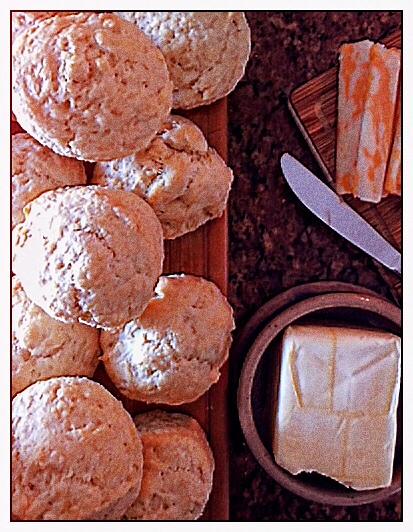by Denise McQuiston
Early memories of Motherhood, struck by tragedy and coincidence that began in Canada, shaped my views of how a mother’s love will forever guide us.
On our way to a vacation with my mom’s brother and family, my parents and I stopped to say goodbye to my Granny. My mother’s mother convinced them to leave me with her. They needed some time alone, she said. I was three years old at the time and toddlers are distracting. Later my Grammy told me she felt very strongly about me staying with her, and my parents agreed.
It was a premonition, she said.
My parents made it to their destination. My Uncle was organizing and arranging the cabin for the week and went to light the gas stove. There was a leak, and the sky in Canada became an explosion. An inferno of flames consumed my family.
Sarah, my Mother, was gone. Fire is the most painful of deaths I have heard.
The coincidence and synchronicity of Granny insisting I stay with her saved my life. She became my guardian and raised me. That was a karmic bond between us. I was her daughter’s daughter, she my Mother’s Mother; a relationship that rose from the ashes of my parent’s death in flames.
I suffered from night terrors, would awake in the middle of the night screaming and crying, I was literally drowning in the abyss. My granny would come to me. Sometimes she would read poetry, say a prayer, or play Ethel Water records for me. More importantly, she would take me outdoors to star gaze. She would name the constellations, pinpoint falling stars. She told me I could name them for my mother.
The sky became an infinite place where I began to grow from. I filled it with imagination, observations, stories, music and visions of what the future may be. I knew my Mother was listening to me up there. I began to heal. I believe a Mother’s love is greater than God.
Learning life lessons takes time, and school, people or religion are time-consuming teachers. My best friends were my best teachers. Ironically they were both named Denise! Coincidence? My granny made sure we were inseparable, and I gained so much confidence.
No matter how many years went by there was still a huge empty space blown into my psyche by Mother’s death. I had to learn to live around it. I could never fill that abyss and sometimes I would fall in.
You can heal from that loss but you never stop feeling it.
Then there was a time in life to fall in love — the happy ending to a tragic story — find a lover, get married, have children and live happily ever after. My Granny was getting older and wanted me married before she left.
So I did.
Michael entered my life, yet after we married he made it clear he really did not want children, I never had a mother, what did I know about raising Children? He was the oldest child in a large Catholic family he wanted nothing to do with babies. Well, that’s cause for divorce.
My grandparents both died about that time. When I lost my Granny it was like losing my Mother again. I became invisible to alcohol and by coincidence a colorless flammable liquid. It was another fire to consume life.
Synchronicity and coincidence give meaning to related events. It started with a phone call from my uncle in Alaska who informed me an insurance policy from my father was found after my granny’s death.
I was stunned. I was Divorced, drunk, and feeling more alone than I ever had in my life. Money from my Father’s lost insurance policy arrived 25 years after his death. I was desperate for cash, this was surreal. A Mother’s love knows no boundaries; in life or death.
After I received the money from the insurance, I was certain I should move out of town, stop drinking, and move forward in life. I think my Father would have wanted that. That seemed to be the message. I was in my late twenties now approaching my thirties. I needed to pull myself together. I would do it for the memory of my mom and dad.
Life lessons take time.
Amazing what a morning can be without a hangover. I arrived at work early and fresh, and was called to the personnel office. The Director seemed a bit confused over a woman who had called to contact me. She had contacted my cousin and found out where I had worked. She was a friend of my family and considered herself my Mother’s best friend. Beverley left her phone number with the personnel office for me to call.
Another surreal moment. I felt my Mother coming through exactly the same way my Father came through.
I called Beverly, who was indeed my Mother’s best friend, but had moved to Detroit to be married and lost contact. My Mother’s death tore her apart. Recently divorced, Beverly was forced to sell her house in Detroit. My cousin, in real estate, helped her find a small house in Spring Lake. It happened sooner than expected and she needed someone to stay in the house until her business affairs in Detroit were settled. My cousin had explained my divorce and situation and she thought I may like to move to this town. It was close to where I was now located. It looked like I was going to be able to move.
Money from my Father’s insurance money and a house from my Mother’s best friend became another major move in my life guided by coincidence.
Beverly let me stay in her home as long as I needed. She told me so many stories about my Mother that I needed to hear. My Mother’s heart and soul shined on us the time we were together. I gained a lot of pride and confidence in those six months. I felt good about myself again. Beverly was psychic and explained to me a lot about the place I called the abyss, and how I could control it and use it as an aid in my life.
Birth, fire, and death; synchronicity, timeless maternal love. The elements of growth in my life.
News of a divorce can travel far. A friend in California invited me to visit for a winter vacation. I accepted the invitation, even though my dwindling cash reserve was a concern. Sometimes you must gamble to get a pay off in life. You trust an urge to instinct. I did exactly that when I headed West to California.
It was so good to connect again with friends from Michigan. They insisted on going to Reno to the casinos. It was fun, free food and drinks and gambling. They call it beginner’s luck. I won a ton of money.
When I realized I had won enough to extend my stay in California I cashed in. It takes time to learn lessons in life. In California I studied Chinese medicine and healing. I practiced a bodywork therapy called TuiNa. I helped people heal and started my own private practice.
During this period I began to want to have a child. I was in my late thirties. Could I be someone’s Mother? Didn’t I have enough experience to know what it means?
Experience does not teach what being a Mother is; giving birth does that. I became pregnant. I was going to be someone’s Mother.
My son Vincent was born on August 14, 1993. His birth was during the Lenid meteor shower and on a Blue Moon. My Mother and Grandmother were both smiling.
I have faced many challenges raising my son. He is Autistic. California is a wildfire zone. It went from having fire seasons to having firestorms. I have learned to respect and live with fire in my life, and I know to stay out of its path. My Grandmother taught me that. It saved my life.
As life moves us forward we change. We follow the stories and the ways of our mothers, grandmothers and great grandmothers. Their love holds us together, guided by the mystery of synchronicity. Mother love is the long-standing shield that protects us.
Mother love makes this unpredictable place called Earth home. Mother love asks us to be home wherever we are under any circumstance.
© 2018 Denise McQuiston
Denise McQuiston resides in Western Massachusetts with her son and partner. Her Facebook Pages; Self Healing Movements and TuiNa Answers reflect her healing practice.




